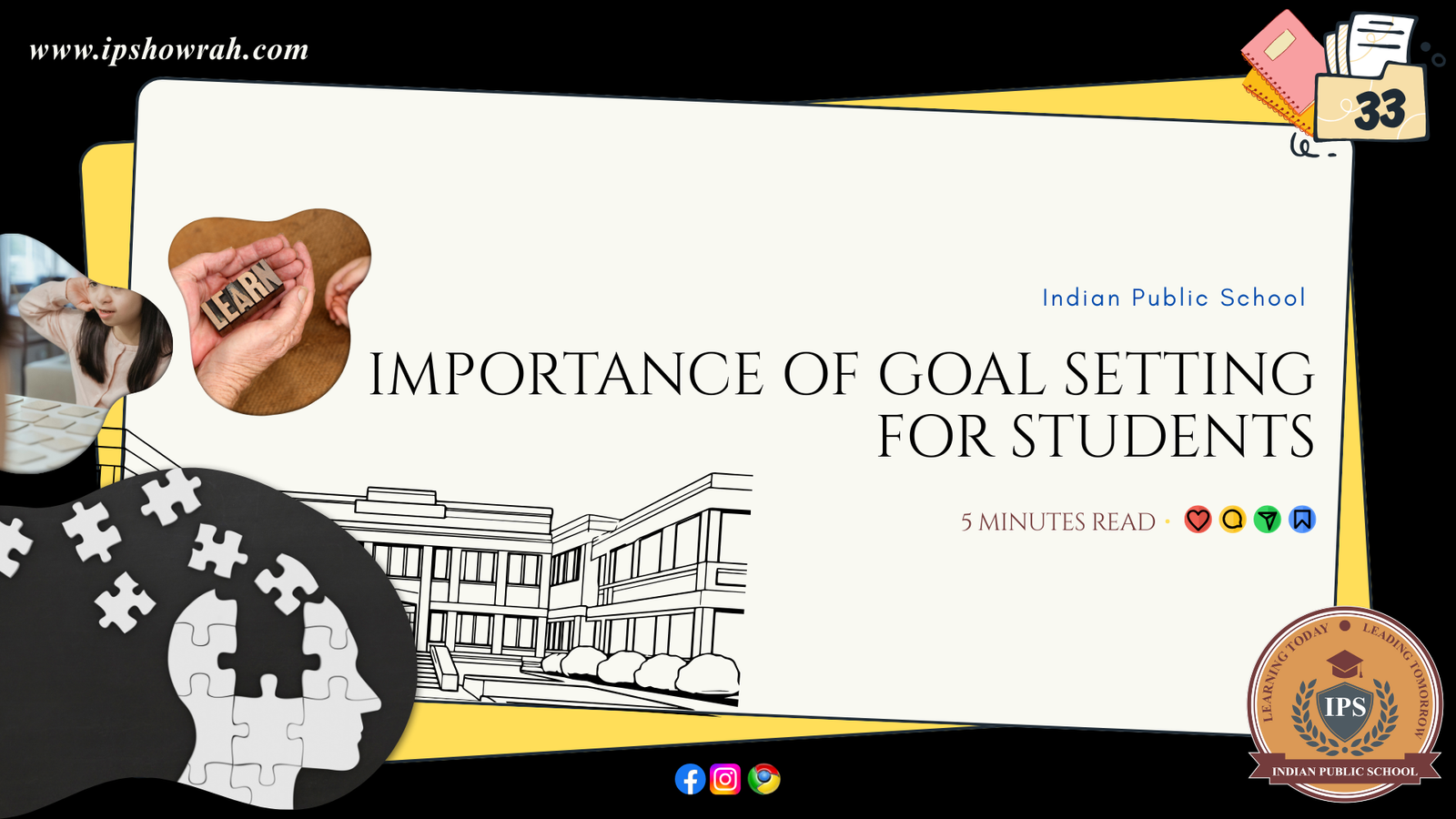Importance of Goal Setting for Students

Setting goals is like drawing a map for a journey – it helps you know where you’re going and how to get there. For students, making small, clear goals can mean the difference between feeling lost and feeling confident. In this article, we’ll explore how goal setting for students builds focus, boosts energy, and makes you proud of your progress. Let’s look at some practical student success tips to help you start setting (and reaching!) your own goals.
Why Set Goals in School?
The school day is packed with homework, projects, and activities. Without a plan, it’s easy to feel overwhelmed or unsure of what to do next. But when you break things down into smaller, manageable goals, everything feels more achievable. Goal setting for students helps you focus on what’s important, keep track of your progress, and stay motivated even when things get tough.
When you reach a goal – no matter how small – it gives you a sense of accomplishment. That feeling can be a powerful motivator, pushing you to keep working toward even bigger dreams. In short, goals help you stay organized, confident, and ready for success.
How Small Goals Make a Big Difference
Big dreams are great, but they can be hard to reach right away. That’s why setting small goals is so effective. Instead of trying to “get better at math” all at once, try goals like “finish three extra math problems every day” or “ask the teacher one question about a tough topic this week.” These little steps add up over time and make bigger challenges feel less scary.
Small goals are easier to track, which makes it simple to see your progress. Each time you cross something off your list, you build momentum and confidence. Soon, what once felt impossible becomes part of your everyday routine.
Steps to Effective Goal Setting
Ready to start setting your own goals? Here’s how you can make it work for you:
– Be Specific: Instead of “study more,” try “study for 20 minutes after dinner each night.”
– Make Them Measurable: Use numbers or targets so you know when you’ve finished – “read two new library books this month.”
– Keep Them Realistic: Choose goals you can actually achieve, even if they seem small at first.
– Set a Timeline: Give yourself a deadline, like “finish my science project by Friday.”
– Write Them Down: Putting goals on paper (or in a notes app) makes them feel real and helps you remember.
– Celebrate Wins: Reward yourself when you reach a goal – maybe a favorite snack, some extra playtime, or just a happy dance in your room!
How Goals Help You Stay Focused
When you have a clear goal, you know exactly what you need to do next. This clarity helps cut through distractions and keeps you on track. For example, if your goal is to “practice spelling words for 10 minutes every morning,” you’re less likely to spend that time scrolling on your phone or watching TV.
Goal setting for students also helps you manage your time better. Instead of rushing at the last minute, you can plan ahead and spread your work out. This not only reduces stress but also gives you more free time for fun, hobbies, and relaxation.
Feeling Proud of Your Progress
Every time you complete a goal, take a moment to feel proud of yourself. Even small achievements matter – they show that you’re making progress and moving forward. Over time, these little victories add up to big changes in your habits, skills, and confidence.
If you miss a goal, don’t be too hard on yourself. It happens to everyone! Just make a note of what went wrong and how you can do better next time. Remember, the best part of goal setting is learning from both successes and mistakes.
Student Success Tips for Goal Setting
– Start with what matters most: Pick one or two areas where you want to improve – maybe homework, reading, or a hobby.
– Share your goals: Tell a friend, teacher, or family member. They can cheer you on and help you stay accountable.
– Track your progress: Use a checklist, app, or calendar to mark off what you’ve done.
– Adjust as you go: If a goal is too easy, make it bigger. If it’s too hard, break it into smaller steps.
– Reflect and celebrate: Take time each week to look back at what you’ve accomplished – and enjoy your growth.
Frequently Asked Questions
What if I don’t know what goals to set?
Start with something small and simple, like improving your school bag organization or doing your homework without being reminded. As you get used to setting goals, you’ll find new things to work on.
Can I set goals with friends?
Absolutely! Group goals, like “finish our group project two days early,” can be fun and motivating. You can support each other and celebrate together.
What if I keep missing my goals?
Don’t give up – just change your plan. Maybe your goal was too big, or you need a reminder from a friend. Adjust, try again, and keep moving forward.
How many goals should I have at once?
One or two is enough at first. Too many goals can be overwhelming. Focus on what’s most important right now.
Why is goal setting a student success tip?
Goals help you stay organized, motivated, and focused – qualities that make learning easier and more enjoyable. They’re a simple way to build habits that lead to long-term success.
Conclusion
Goal setting for students is one of the smartest things you can do to make school life easier and more rewarding. By breaking big dreams into small, manageable steps, you build focus, confidence, and a sense of achievement.
Each little goal you reach is a victory worth celebrating. So pick something you want to work on, set a clear, realistic goal, and get started. With patience and practice, you’ll soon see just how much you can achieve. You can follow us on Instagram and Facebook for more updates.



